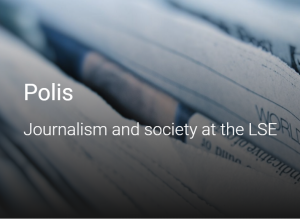The revelation of phone hacking at the News of the World, targeting members of the royal family, celebrities, politicians and victims of violent crime, has had an enormous impact on the UK media landscape, resulting in not only the closure of the 168 year-old newspaper but also the beginning of several investigations, including a wide-ranging inquiry into media ethics in the UK.
This dossier will be a source of information on the developments in the phone hacking case relating to media policy.
1. Institutions in Question
News International
News International is the UK newspaper publishing subsidiary of News Corporation that owned the now-defunct News of the World. When the scandal erupted in July, the Department of Culture, Media and Sport was in the process of deciding whether News Corporation’s bid to purchase the remaining shares of UK broadcaster BSkyB that it did not already own would be allowed to proceed. The bid was later withdrawn as a result of the scandal. Further information is available on the Media Policy Project’s dossier on Media Plurality and News Corporation’s BSkyB bid.
In early July, it was discovered that murder victim Milly Dowler’s voicemail had been hacked by News of the World investigators. The announcement of the tabloid’s closure followed shortly after.
Several former and current employees of the tabloid and its parent company were arrested during the ensuing investigations. Most notably those included Stuart Kuttner and Neil Wallis, former editors of News of the World, Rebekah Brooks, former editor of News of the World and chief executive of News International, and former editor of News of the World and former spokesperson for the Prime Minister Andy Coulson.
On July 14, 2011, Rupert Murdoch, chief executive of News Corporation, his son James Murdoch, chief executive of News Corporation Europe and Asia, and Rebekah Brooks appeared for questioning before the Culture, Media and Sport Committee.
James Murdoch’s full statement on the closure of the News of the World:
http://www.dailymail.co.uk/news/article-2012318/News-World-close-James-Murdochs-statement-full.html
The Guardian reveals that the News of the World hacked into Milly Dowler’s voicemail:
http://www.guardian.co.uk/uk/2011/jul/04/milly-dowler-voicemail-hacked-news-of-world
Press Complaints Commission
Founded in 1991 under the threat of government intervention in press regulation, the PCC is the voluntary self-regulatory governing body of the UK press. The PCC has come under fire in the wake of the phone hacking scandal for being ineffective in implementing its code of practice. Several politicians, including Prime Minister David Cameron, have called for the body to be scrapped.
2. Inquiries and Investigations
Several government bodies are looking into different aspects of the phone hacking scandal, including the Home Affairs Select Committee, the Culture, Media and Sport Select Committee, and the Independent Police Complaints Commission.
IPCC decision on conduct of investigators
Summary of IPCC Role in News International Related Cases
Leveson Inquiry
Headed by Lord Justice Leveson, the Inquiry is continuing the investigation into the phone hacking scandal, including how prior police investigations failed to reveal the scope of phone hacking by News of the World and payments from the press to the police. The Inquiry’s remit also includes an investigation into press ethics in the United Kingdom.
http://www.levesoninquiry.org.uk/
3. Reports
First Report from the Joint Committee on the Draft Defamation Bill
Published in October 2011, after the close of a consultation on the draft bill, proposals include recommendations on “responsible journalism in the public interest.”
http://www.publications.parliament.uk/pa/jt201012/jtselect/jtdefam/203/20302.htm
What Price Privacy?
In 2006, the Information Commissioner’s Office published a report on the illegal trade in personal data, followed six months later by another report on progress made.
What Price Privacy?; What Price Privacy Now?
Privacy and Media Intrusion
2003 report by the Culture, Media and Sport Committee
http://www.publications.parliament.uk/pa/cm200304/cmselect/cmcumeds/213/213.pdf
Carnegie Trust Report
Introduces 9 key questions for civil society to consider in press regulation
http://www.carnegieuktrust.org.uk/getattachment/b495f78c-0c99-49cc-aa3c-8195563d9e2a/Regulation-of-the-Press.aspx
SourceURL:file://localhost/Users/vaagen/Desktop/Nate/Media%20Policy%20Project/Phone%20hacking%20dossier/Civil%20Society%20links.docx
4. Inquiry Watchdogs
Several academic and civil society advocacy organizations have been closely following the Leveson hearings.
Hacked Off
http://hackinginquiry.org/
Index on Censorship
http://www.indexoncensorship.org/
Coordinating Committee on Media Reform
http://www.mediareform.org.uk/
5. Statements, Speeches and Positions from Leveson Seminars and Hearings
Leveson Hearings Witness Statements
http://www.levesoninquiry.org.uk/evidence/
Paul Dacre, Daily Mail Editor on self-regulation:
http://www.guardian.co.uk/media/2011/oct/12/paul-dacre-leveson-speech
“And self-regulation, I would argue, is at the very heart of a free press. Which is why I profoundly regret that a Prime Minister – who had become too close to News International in general and Andy Coulson and Rebekah Wade in particular – in a pretty cynical act of political expediency has prejudiced the outcome of this inquiry by declaring that the PCC, an institution he’d been committed to only a few weeks previously, was a “failed” body. It is emphatically not.”
Eve Salomon, Media Regulation and Law Expert and Former Chair of Internet Watch Foundation Board, on self-regulation:
http://hackinginquiry.org/news/eve-salomons-talk-at-leveson-inquiry-seminar/
“There are well-rehearsed arguments about potential state interference with freedom of expression, which I don’t need to repeat. But there is another practical reason: if the press feels coerced into regulation it doesn’t want, it will rebel. And it will use the weapon most readily at hand, and which is not available to the regulator – the media . . . So my second message is: don’t impose a new regulatory arrangement which doesn’t have the support of the press behind it.”
Alan Rusbridger, Guardian Editor on free speech:
http://www.pressgazette.co.uk/story.asp?storycode=48081
“The press is sometimes called the fourth estate. That’s probably too grandiose a concept for most journalists’ tastes – but it does suggest an important, coherent and independent force in society. That “apartness” is crucial. The press does not share the same aims as government, the legislature, the executive, religion or commerce. It is, or should be, an outsider.”
6. Proposals for reform
Andrew Chadwick and Hugh Tomlinson on Media Tribunals Proposal:
http://inforrm.wordpress.com/2011/10/04/media-regulation-a-radical-new-proposal-part-3-a-media-regulation-tribunal-hugh-tomlinson-qc/
Media Lawyers Chadwick and Tomlinson propose media tribunals which would cover media beyond the printed press and would roll in libel reform with reform of self-regulation to develop a pan-media tribunals system that would hear complaints relating to journalism, including PCC code issues, as well as defamation and privacy breaches.
Lionel Barber, Financial Times Editor, in his Fulbright Speech:
http://www.guardian.co.uk/media/2011/sep/14/lionel-barber-fulbright-lecture
Barber proposes opening up self-regulation to include more “outsiders” in what he calls a Media Standards Commission. This Commission would have investigative and sanctioning powers
Martin Moore, Media Standards Trust Director:
http://mediastandardstrust.org/blog/reform-of-press-self-regulation-a-spectrum-of-possible-models/
Moore proposes seven different options for reform including the option of reforming the PCC, abolishing the PCC, extending Ofcom-like body to cover all media and others.
Coordinating Committee for Media Reform:
http://www.mediareform.org.uk/featured/summary-of-media-reform-recommendations-2
The CCMR proposes reforms in the areas of ethics, public interest, plurality and funding.
Press Complaints Commission:
Known as “PCC 2.0”, the PCC proposal is outlined by Lord Hunt in his witness statement and evidence and Lord Black in his first and second witness statements and evidence, given at the Leveson hearings.
7. Relevant Legislation
Human Rights Act 1998
The Human Rights Act 1998 brought the UK more in line with the European Convention on Human Rights and states that Freedom of Expression must be balanced against “any privacy code”
http://www.legislation.gov.uk/ukpga/1998/42/contents
Freedom of Information Act (2000)
http://www.legislation.gov.uk/ukpga/2000/36/contents
The Privacy and Electronic Communications Regulations 2011
The 2011 Amendment implemented the EC Directive and amended the Telecommunications (Lawful Business Practice) (Interception of Communications) Regulations of 2000.
http://www.legislation.gov.uk/uksi/2011/1208/contents/made
http://www.legislation.gov.uk/uksi/2000/2699/introduction/made
8. Media Sources and Commentary
Phone Hacking Timelines




